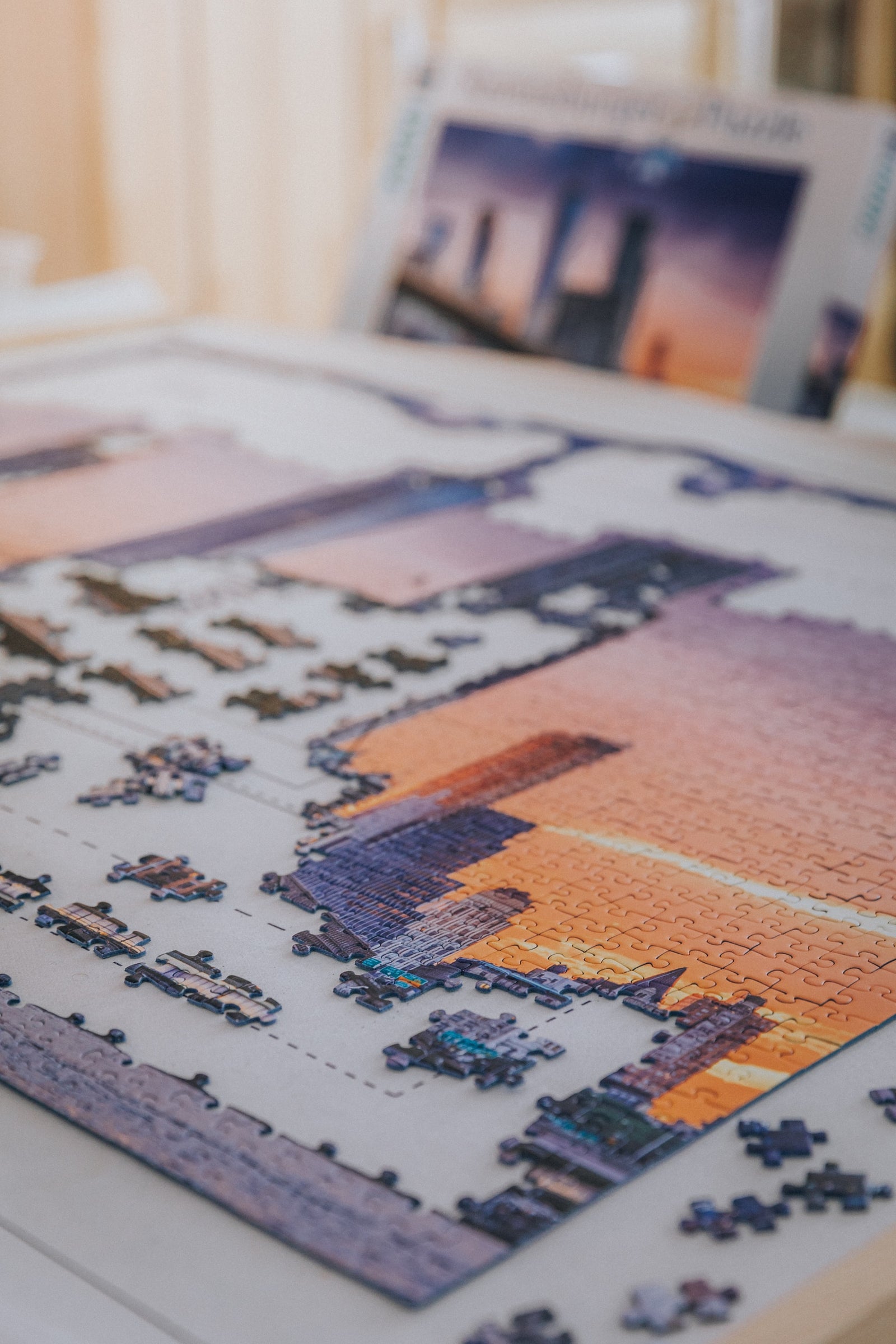Your Cart is Empty
For Sales Enquiries: sales@jigsawexchange.com
For All Other Enquiries: info@jigsawexchange.com
For Sales Enquiries: sales@jigsawexchange.com
For All Other Enquiries: info@jigsawexchange.com

Many people think of jigsaws as a simple pastime, conducted in solitude and isolation, but they can also be very sociable. You can chat and tell stories as you go. And they are not competitive. Nobody loses. It’s a joint effort. Jigsaws are for company, not for winning prizes.
They can also be therapeutic. When a friend of mine was looking after her seriously-ill husband, she said she found difficulty concentrating on her usual reading, but alternatively doing a jigsaw kept her occupied and reduced stress.
Jigsaws can be educational as well as entertaining. They originated in the 18th century as tools to help governesses teach geography in upper-class schoolrooms. The Queen, we are told, is very fond of jigsaws and likes to occupy herself with them at Balmoral.
The recent pandemic and the frequent restrictions on movement have brought jigsaws back into many people’s lives and can be a welcome alternative pastime on those long dark winter nights.
Just type in your email address to stay in the loop.